Fight Club is a 1999 American film based on the 1996 novel of the same name by Chuck Palahniuk. The film was directed by David Fincher and stars Edward Norton, Brad Pitt and Helena Bonham Carter. Norton plays the unnamed protagonist, an "everyman" who is discontented with his white-collar job. He forms a "fight club" with soap maker Tyler Durden, played by Pitt, and becomes embroiled in a relationship with him and a dissolute woman, Marla Singer, played by Bonham Carter.
Palahniuk's novel was optioned by 20th Century Fox producer Laura Ziskin, who hired Jim Uhls to write the film adaptation. Fincher was one of four directors the producers considered and hired him because of his enthusiasm for the film. Fincher developed the script with Uhls and sought screenwriting advice from the cast and others in the film industry. The director and the cast compared the film to Rebel Without a Cause (1955) and The Graduate (1967). Fincher intended Fight Club's violence to serve as a metaphor for the conflict between a generation of young people and the value system of advertising. The director copied the homoerotic overtones from Palahniuk's novel to make audiences uncomfortable and keep them from anticipating the twist ending.
Studio executives did not like the film and they restructured Fincher's intended marketing campaign to try to reduce anticipated losses. Fight Club failed to meet the studio's expectations at the box office and received polarized reactions from critics. It was cited as one of the most controversial and talked-about films of 1999. However, the film later found commercial success with its DVD release, which established Fight Club as a cult film. Critical reception of Fight Club has since become more positive.
Palahniuk's novel was optioned by 20th Century Fox producer Laura Ziskin, who hired Jim Uhls to write the film adaptation. Fincher was one of four directors the producers considered and hired him because of his enthusiasm for the film. Fincher developed the script with Uhls and sought screenwriting advice from the cast and others in the film industry. The director and the cast compared the film to Rebel Without a Cause (1955) and The Graduate (1967). Fincher intended Fight Club's violence to serve as a metaphor for the conflict between a generation of young people and the value system of advertising. The director copied the homoerotic overtones from Palahniuk's novel to make audiences uncomfortable and keep them from anticipating the twist ending.
Studio executives did not like the film and they restructured Fincher's intended marketing campaign to try to reduce anticipated losses. Fight Club failed to meet the studio's expectations at the box office and received polarized reactions from critics. It was cited as one of the most controversial and talked-about films of 1999. However, the film later found commercial success with its DVD release, which established Fight Club as a cult film. Critical reception of Fight Club has since become more positive.
Brad Pitt Fight Club Pictures 1
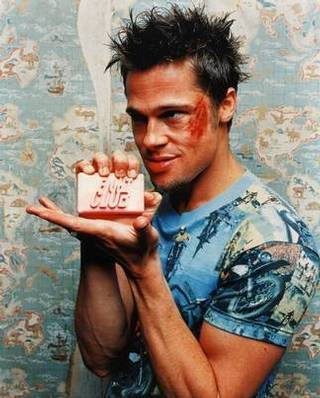
Brad Pitt Fight Club Pictures 2

Brad Pitt Fight Club Pictures 3

Brad Pitt Fight Club Pictures 4
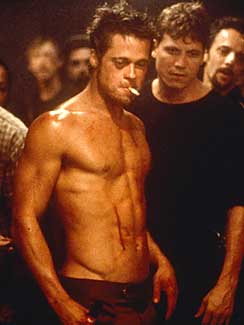
Brad Pitt Fight Club Pictures 5

Brad Pitt Fight Club Pictures 6
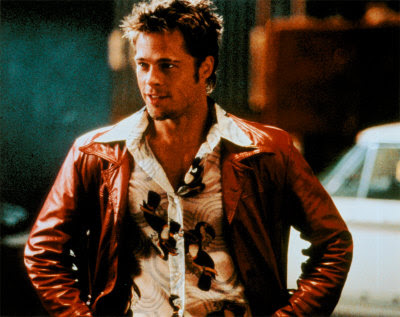
Brad Pitt Fight Club Pictures 7

Brad Pitt Fight Club Pictures 8

Brad Pitt Fight Club Pictures 9

Brad Pitt Fight Club Pictures 10

Brad Pitt Fight Club Pictures 11

Brad Pitt Fight Club Pictures 12

Brad Pitt Fight Club Pictures 13

Brad Pitt Fight Club Pictures 14

Brad Pitt Fight Club Pictures 15

Brad Pitt Fight Club Pictures 16
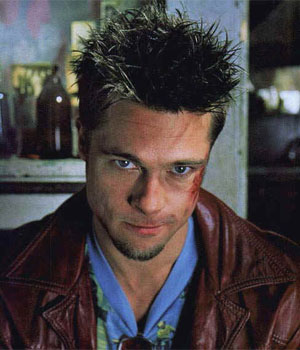
Brad Pitt Fight Club Pictures 17
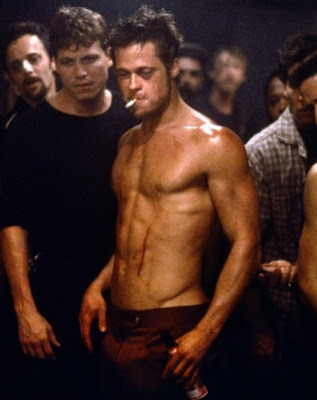
Brad Pitt Fight Club Pictures 18

Brad Pitt Fight Club Pictures 19

Visit Jornaldanet 34 for Daily Updated Hairstyles Collection








